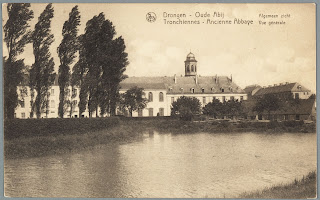Two principal dancers stood before an after-show audience gathered in the lobby of the Boston Opera House. A young man and a young woman, exhausted from over two hours’ dancing in
Eugene Onegin, did their professional best and from the steps of the grand staircase looked into the upturned faces of their fans. The dancers tried to do what they had agreed to do, to speak about their understanding of the ballet in which they had just performed so gloriously. One dancer pulled a white pullover closer around her; the other stood at ease in his jeans, hands joined behind his back.
From time to time in the next fifteen minutes, the ballerina put her hand on her chest, looked up into the air above her and said haltingly, “I'm sorry. I'm just emptied right now.” It was an apology, a plea for our understanding of what she had poured out for us through her dance.
In two different scenes in the ballet, each of these principals tears a letter into pieces. In each case we understand what the letter had said, what it had offered of the heart, of the world in which someone smitten lives. In each case the returned letter is at first refused; the writer of the letter will not touch the letter even when it is thrust before them. The unwilling recipient must then shred the letter before the face of its writer if a clear refusal is to be understood.
Love in 1820s Russia was not easy.
The journalist interviewing the two dancers asked about the significance of love letters. Do actual letters, she asked the dancers, have power in them that can be matched these days by email or text messages?
The young man thought not; he confessed, however, with a smile that he had never written a love letter.
At greater length the ballerina replied that the communication of love in a written letter, a
hand-written letter, is flowing from the heart through the arm into the hand that writes it. The material object, the very paper on which the message is written, is soaked in the love of the person who has written it. Nothing similar, she thought, could happen in an email, a text message or a tweet.
The audience laughed, smiled, nodded, agreed; there was nothing we would not do for this ballerina at the end of the evening.
Amid half-regretful applause, we allowed ourselves ready. We would head out. The evening was over. If the two dancers were exiting by a different door from those by which we issued onto a cold February sidewalk, the dancers likely checked their phones as automatically as we did.
We made our ways into our histories. All of us.
Which one of us had ever torn up a love letter?
How many of us would get to write one again?













